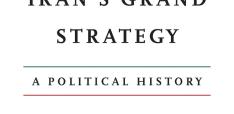Hybrid Threats in Europe: Zersetzung Writ Large

No firewall can save a democracy. As Robert Schuett argues, we must fortify our shared democratic minds.
On 21 May 2025, the UK’s National Cyber Security Centre (NCSC) joined international allies to issue the Cybersecurity Advisory (CSA) “Russian GRU Targets Western Logistics Entities and Technology Companies,” warning of a state-backed Russian cyber campaign against Western logistics, transport, and tech firms, and Ukraine’s supporters. The agencies assess that the cyber espionage-oriented campaign relies on known tactics, techniques, and procedures (TTPs), with further risks and threats likely to emerge.
Just days later, reports surfaced of Russian-linked hackers posing as journalists in a failed cyber-espionage attempt against UK Ministry of Defence staff. The very same day, the UK announced it will ramp up cyberattacks against Russia (and China) as Defence Minister John Healey confirmed Britain is engaged in cyberwarfare, unveiling a new cyber command to coordinate offensive operations. Quid pro quo. One cyber move provokes another.
Now, it is well known that Russia’s GRU, the military’s intelligence arm, is not only a global leader in electronic warfare but also a formidable cyber power. Thus, Western allies and partners are right to strengthen their cyber capabilities, both defensive and offensive. However, the focus on cyber as a key tool in Russia’s hybrid warfare is a mixed blessing, as it risks reducing the broader challenge of hybrid threats to a purely technological issue.
Few concepts in international security and global policy are as elusive and fuzzy as hybrid threats. Theorists and practitioners alike debate its historical roots, some tracing it back to ancient warfare strategies and tactics. For well over a decade, much debate has swirled around the so-called Gerasimov Doctrine, and whether it even exists. Hybrid threats have been linked to a range of other concepts, from asymmetric threats to new warfare and full-spectrum conflict. And, of course, the policy debate continues: how best to counter hybrid threats, and whether what’s truly needed is a whole-of-society approach.
What, then, are hybrid threats? And what makes them so dangerous to democracy? To begin with, hybrid threats can very well be defined as “potential overt and covert, military and nonmilitary actions that a state or nonstate actor might take to undermine a targeted society and achieve political goals.” The key here is that the aggressor’s aim is to weaken the targeted society to advance political goals. One might say, then, that hybrid threats are deeply political.
They are political because, from the perspective of political realism — which, in Hans Morgenthau’s words, holds that “international politics, like all politics, is a struggle for power” — the coordinated use of conventional and unconventional means becomes just another tool. It is simply a way to manipulate the balance of power at any given moment in history. Cyber is just one of many tools to be used (or abused) alongside propaganda, economic coercion, coercive diplomacy, terrorism, psychological warfare, subversion, sabotage, and more.
However, hybrid threats are not only deeply political but also deeply psychological — and, I dare say, even deeply psychoanalytical. They flip Freud on his head: no talking cure here — only calculated pain, inflicted by hijacking the open flow of information and the free and norms-based intellectual space that democracy depends on to breathe and survive.
The Stasi, the former East German security police and intelligence agency, mastered Zersetzung (no single English word fully capture its meaning) — a sinister art of an active psychological measure aimed at breaking individuals and regime opponents from within, driving them to doubt their own sanity, leaving them paranoid, isolated, and powerless without ever laying a hand on them. Today’s hybrid threats are Zersetzung on a grand scale: the aggressor’s goal is not just to pressure the target from the outside, but to poison it from the inside: corroding trust, shattering social bonds, and driving entire societies toward confusion and collapse. It is an assault designed to leave the target mad, defenseless, and broken, without even realizing who delivered the killing blow.
Understanding hybrid threats in both political and psychoanalytical terms — as strategic Zersetzung writ large — means recognizing that cyberattacks are actually among the more overt threats we face today. In this era of renewed great power competition, with a full-scale Russian war raging in Ukraine, what’s even more alarming is what remains unseen, lurking in the shadows. One key concern is the intent of Russia’s securocrats/siloviki to defend so-called “Fortress Russia” seemingly at any cost. For them, the war in Ukraine is framed not merely as territorial conquest but as existential — a fight for the very survival of Russia and its ruling regime.
Secondly, when it comes to strategic and tactical capabilities, Russia’s mobilization of cyber power is undeniably something to be reckoned with — and Western governments (and businesses) must urgently step up to meet these cyber challenges. But even more concerning is Russia’s enduring strength in classical espionage, its use of organized crime networks for geopolitical aims, and its continued mastery of the full spectrum of political interference, from disinformation to relentless propaganda campaigns.
What’s more, third, Russia appears increasingly willing to undertake high-risk operations — from assassination attempts to sabotage and subversion — making it ever clearer that the current Russian leadership remains deeply ensnared in its “Chekist mindset.” This ethos or worldview has been passed down through the KGB and now the FSB and GRU, embedding a culture of secrecy, suspicion, conspiratorial thinking, and a dangerously stubborn belief that Russia is constantly under siege from internal and external enemies. It prioritizes control, manipulation, and the ruthless pursuit of power through covert and other extralegal means.
Are we sufficiently prepared to counter hybrid threats coming out of Russia and from elsewhere? The hard truth is: not yet. While Western governments have taken important steps to collaborate on the issue, strengthen cyber defenses and counter disinformation, the challenge runs much deeper. What’s required is not just better technical cyber-safeguards or sharper intelligence cooperation and law enforcement work — both of which still fall short —, but a whole-of-society resilience: investing in media literacy, fortifying democratic institutions, reinforcing social cohesion, and protecting the norms-based intellectual space that keeps open societies alive.
Hybrid threats are designed to corrode, confuse, and destabilize from within. Confronting them demands not only defensive measures, but also the political will, societal unity, and cultural readiness to stand firm against invisible assaults. Democracies must cultivate a civic spirit that is alert but not paranoid, confident but not complacent — one that actively defends the values, norms, and open spaces that hold free societies together.
Since Zersetzung writ large works through the individual mind, what is needed is a deep, individual and collective resilience anchored in the moral and intellectual fabric of all members of society. Where each individual is a target, each also holds the potential — holds the power — to become a democratic counter-force. Without this inner strength, no amount of cyber fortification or intelligence work will ever be enough.
Robert Schuett is co-founder and managing partner at STK Powerhouse, a global risk advisory firm. A former Defence civil servant, he also serves as Chairman of the Austrian Political Science Association and is a long-standing Honorary Fellow at Durham University.
Photo by Sora Shimazaki


